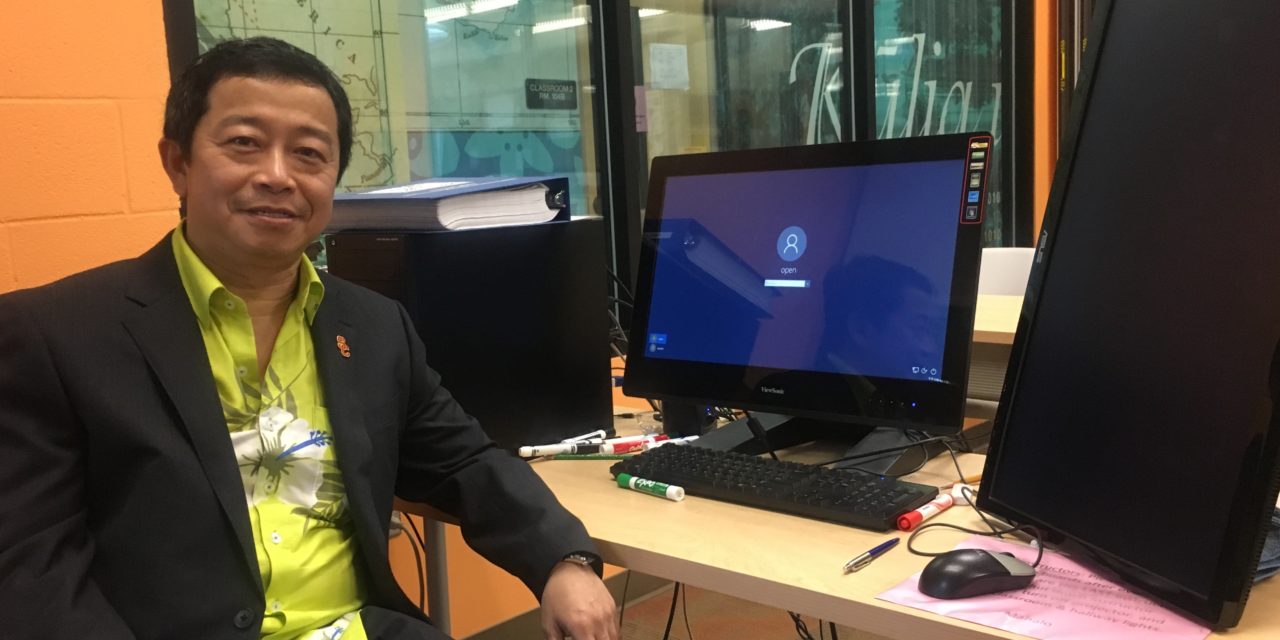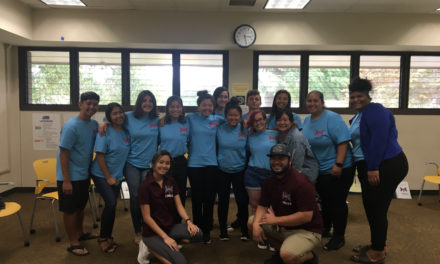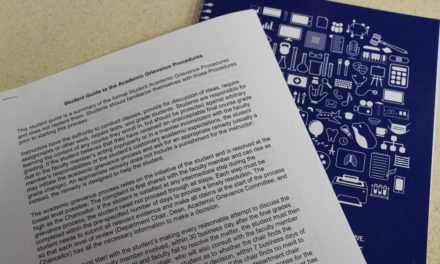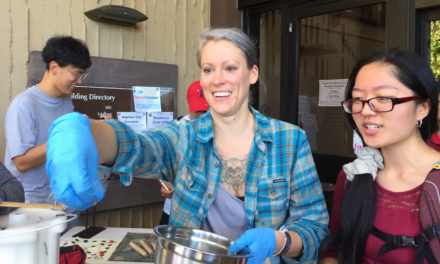By Katlin Cilliers | Staff Writer
Ask a Professor is a regular feature in which The Kapiʻo News will highlight the real-life careers and jobs that stem from areas of study at Kapiʻolani Community College.
Professor Ken Iong is all about the real-life aspects of being a businessman. He takes pride in the fact that his classes emulate real business situations, such as meeting rooms seating arrangements, name tags and a professional behavior.
He’s moved from a business career as a CEO of a ready-to-eat food manufacturer to becoming a professor at KCC, in the hope to contribute and give back to society.
“I tell my students they will have to have a dream, big dream,” he said. “… But if your dream is ‘Oh, I just wanna have a good job.’ That’s not what I am here for them. So I try to encourage, motivate them and organize them into a way so that … they’re not going out there looking for a job that [is] available, they’re looking for a job that they want to work at.”
What does it take to become the CEO of a company?
What it takes to be a CEO, is a long process, [it] is a leadership, you know, one of the things that I talk about in class is a attitude. If you have a positive attitude you can achieve a lot. But without a positive attitude, no matter what you do, you can [not] be really have the right moment.
Which company are you the CEO of?
When I first started, I have a food service company, and we have over 400 employees, and we did food manufacturing, retail, distribution, wholesale, so from here and then in the mainland. So, some of the product you see in the convenience store, from the bento, to the musubi, to the sandwich, to the salad. My company, before I sold it, is called ICH Group – which is my initial. And the trade name is called Sushi Chef. So, Sushi Chef is a ready-to-eat fast food. Ready to eat food, I should say. Ready to eat food distribute state-wide, so if you go the convenience store you can buy my stuff. Pretty much every convenience store.
Who are your clients?
From 7-11 to Tesoro to Island Mini Market, Foodland, Safeway, hotels, you name it. We cover almost 400 location every day in the state, so we are state-wide and we distribute from what we made. And we also have retail restaurant. And our retail restaurant is basically a sushi concept and then we also had a franchise operation. We also had Baskin Robbin, ice-cream franchise. We also the previous Dunkin’ Donut franchise.
Do you still have that company?
No, about 10 years ago I sold that company. I’m in education. I have my doctorate in Education from USC, and then I’m trying to move from a food service to have a strong relationship with my client, to have a longer relationship with the student.
After you graduated from college, how was your journey into the market?
I was an accountant, you know, and then I worked in a retail store, and I was a retail store manager. You know, at that time called Re-store, this company called McInerny is a department store, so over there you get to learn how business work, and being a entrepreneur, you know, like, you wanna do something on your own, you kind of make things happen. … You know, to be impactful in a society. I believe a entrepreneur will be more impactful in the community, because we tend to solve problem[s] in the community.
What is the day-to-day of someone in business?
Well, you’re making a lot of decision[s], you’re responsible for a hundreds of people. … For example, you’re hiring your executive team, right? Your product strategy, your pricing strategy, and especially the product that we have, basically it’s only two competitors in what I do, so if we say, ‘Today, we’re not going to go out there to deliver a product.’ So [it] will affect hundreds of people, maybe thousands, because the customer will be calling me, and the customer’s customer is going to be pissed off, right? … Whatever it takes. If it’s 24/7, it’s 24/7. That’s just part of the business life, because it is your business, and you have to make it happen.
What are the most challenging aspects of being a businessperson?
I think a lot of today’s student[s] they think running your own business … you have to be ready, you have to be hardworking, you have to be 24/7. That’s just a fact. If you want to be going home at 5 o’clock or have a weekend off, then you know, doing a entrepreneur, your own business might not be something you’d want to do. So, because is a long hour and a lot of challenge.
What is your favorite part of business?
It’s probably meeting with all these people. You know, from your co-workers, your employees, the customer. So, everybody is unique, you get to learn. We’re all about people. … So if you want to be successful, you have to be able to work with difficult people, you have to be able to work with easy people, and in business particularly, you have to understand what I call “a demanding customer.” … I think working with people is probably the hardest part and it’s also probably the most enjoyable part.
What kind of traits are needed for a student to succeed in business?
I always go back to the right attitude. If you have the right attitude you can solve any problems, right? And with the right attitude, you have to have action. And you have to have a goal. So, right attitude, then you have your goal, and then you go and make it happen. So I think, you know, this is not [something that] somebody [is] born with. So anybody can be successful. I came here not even speaking English, and I don’t know where I am, and I just come here for school, and 40 years later, I’m still here, I’m supposed to go home after class. So you never really know until you actually been there, done that. But I think overall being positive mind with the right attitude.
[To read previous Ask a Professor features, click here.]






